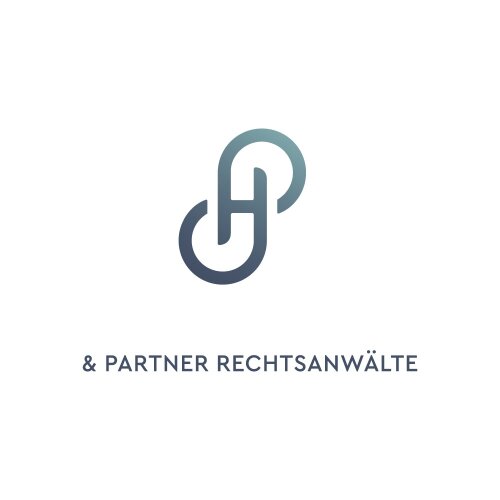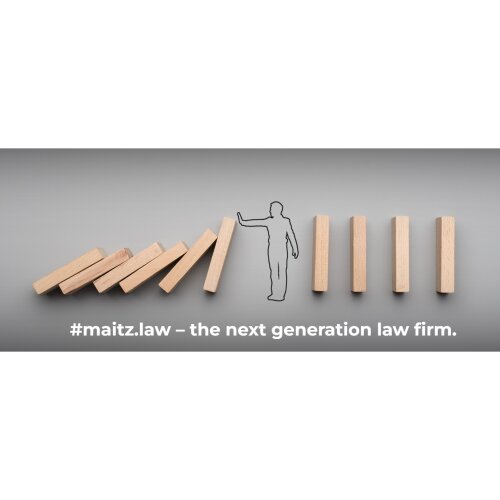Best Probate Lawyers in Ruggell
Share your needs with us, get contacted by law firms.
Free. Takes 2 min.
List of the best lawyers in Ruggell, Liechtenstein
About Probate Law in Ruggell, Liechtenstein
Probate law in Ruggell, Liechtenstein governs the legal process of transferring the estate of a deceased person to their heirs or beneficiaries. This process typically involves validating the deceased's will, identifying and inventorying the deceased's property, paying debts and taxes, and distributing the remaining property as stipulated in the will or by local intestacy laws if no will exists.
Why You May Need a Lawyer
Engaging a lawyer can be beneficial in various probate-related situations including:
- Disputed wills: If there are disagreements over the validity or interpretation of a will.
- Complex estates: Estates with numerous assets, debts, or beneficiaries can be complicated to administer.
- Tax obligations: Navigating estate, inheritance, and other taxes can be challenging without legal guidance.
- Intestate succession: When no will exists, a lawyer can help navigate the intestacy laws to ensure proper distribution.
- Legal documentation: Ensuring all legal documentation is correctly filed and adhered to is crucial in probate cases.
Local Laws Overview
The key aspects of local probate laws in Ruggell, Liechtenstein include:
- Will validation: The local court must validate the will, ensuring it complies with the legal requirements.
- Executor responsibilities: Executors have fiduciary duties including inventorying assets, settling debts, and distributing the estate.
- Intestacy rules: In the absence of a will, local laws dictate how the estate is to be distributed among heirs.
- Tax obligations: Executors must ensure that all relevant taxes on the estate are determined and paid.
- Heirship certificates: A formal certificate issued by the court identifies the rightful heirs and their share in the estate.
Frequently Asked Questions
What is probate?
Probate is the legal process for administering the estate of a deceased person, resolving claims, and distributing the deceased's property under a will.
Do I need a lawyer for probate?
While it is not legally required, having a lawyer can help navigate complexities, especially in cases with disputes or significant assets.
How long does probate take?
The process can take several months to over a year, depending on the estate's complexity and whether there are any legal disputes.
What if there is no will?
If there is no will, the estate will be divided according to Liechtenstein's intestacy laws, which outline the order of heirs.
Who is responsible for managing the estate during probate?
The executor named in the will, or an appointed administrator if no will exists, is responsible for managing the estate.
What are the executor's duties?
The executor's duties include collecting the deceased's assets, paying debts and taxes, and distributing the remaining assets to the beneficiaries.
Can I contest a will?
Yes, if you believe the will is invalid due to issues like undue influence, fraud, or lack of capacity, you can contest it in court.
What taxes need to be paid during probate?
Estate, inheritance, and possibly income taxes must be addressed during probate. Specific tax obligations depend on the estate details.
How are debts handled in probate?
Debts are paid from the estate before distribution to beneficiaries. If the estate lacks sufficient funds, debts may need to be settled according to priority rules.
What happens to jointly-owned property?
Jointly-owned property typically passes directly to the surviving co-owner and may not be subject to probate, depending on the type of joint ownership.
Additional Resources
Consider consulting the following resources for more information:
- Local Courts: The courts overseeing probate can provide guidance on legal procedures and required documents.
- Legal Associations: Liechtenstein Bar Association can help connect you with qualified probate lawyers.
- Government Websites: Official government sites often contain valuable information on local probate laws and forms.
Next Steps
If you need legal assistance in probate:
- Consult a local probate lawyer to discuss your specific situation and get personalized legal advice.
- Gather relevant documents such as the will, death certificate, and a list of assets and debts.
- Understand your legal obligations and rights as an heir or executor.
- Stay informed about timelines and processes to ensure you meet all legal requirements.
By following these steps, you can navigate probate more effectively and ensure the deceased's estate is handled according to their wishes and local laws.
Lawzana helps you find the best lawyers and law firms in Ruggell through a curated and pre-screened list of qualified legal professionals. Our platform offers rankings and detailed profiles of attorneys and law firms, allowing you to compare based on practice areas, including Probate, experience, and client feedback.
Each profile includes a description of the firm's areas of practice, client reviews, team members and partners, year of establishment, spoken languages, office locations, contact information, social media presence, and any published articles or resources. Most firms on our platform speak English and are experienced in both local and international legal matters.
Get a quote from top-rated law firms in Ruggell, Liechtenstein — quickly, securely, and without unnecessary hassle.
Disclaimer:
The information provided on this page is for general informational purposes only and does not constitute legal advice. While we strive to ensure the accuracy and relevance of the content, legal information may change over time, and interpretations of the law can vary. You should always consult with a qualified legal professional for advice specific to your situation.
We disclaim all liability for actions taken or not taken based on the content of this page. If you believe any information is incorrect or outdated, please contact us, and we will review and update it where appropriate.









